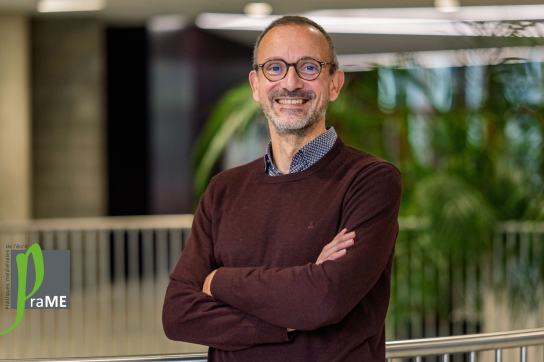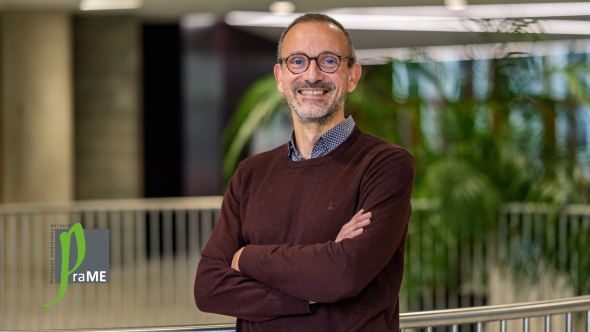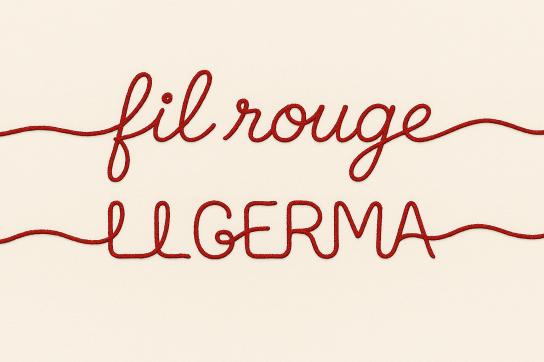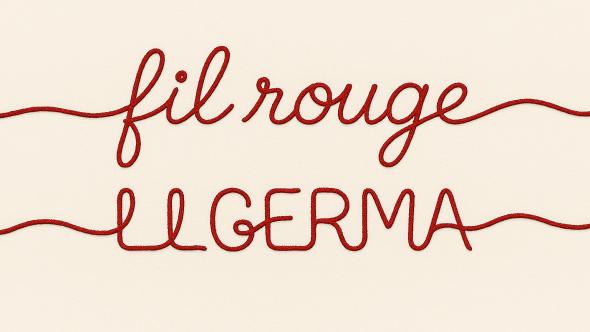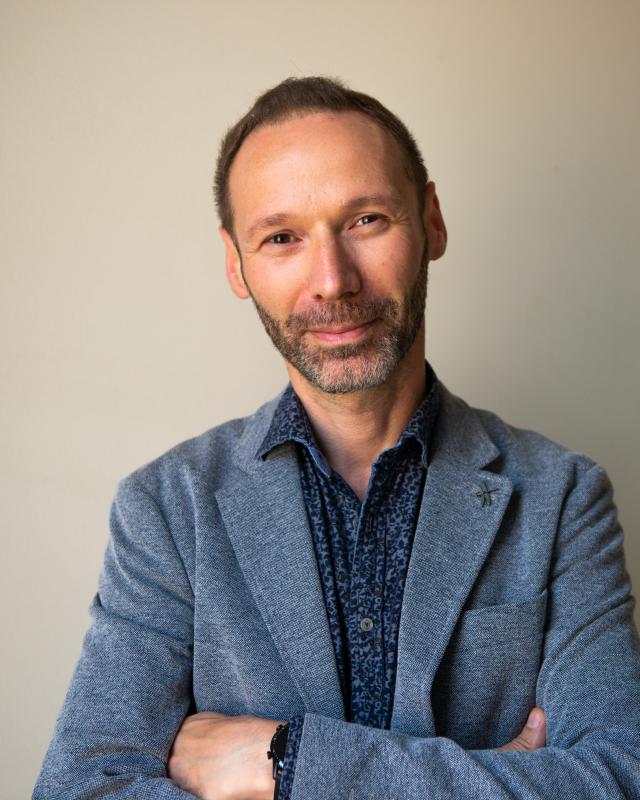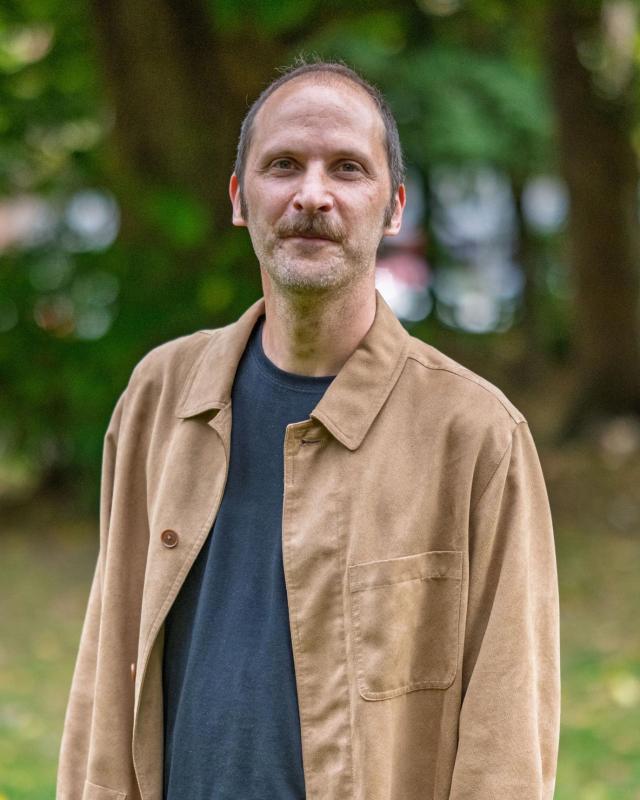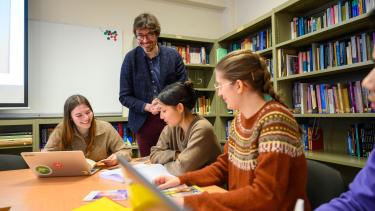The Faculty of Philosophy and Letters invites you to study the productions of the human mind in search of meaning and values, taking care to restore works, documents and currents of thought in their context and evolution. A vast heritage to discover!
The studies
Do you have a curiosity for languages and works in their cultural and temporal diversity, as well as an interest in reflection and analysis? If so, the Faculty of Philosophy and Humanities has something for you. Whether you're looking for a bachelor's degree, a specialized master's, a doctorate or continuing education, the Faculty of Philosophy and Letters offers a wide range of courses, whatever your profile!

Research
Research at the Faculty of Philosophy and Letters is highly diversified, and aims to take a fresh look at the cultural productions of yesterday and today. Scientific projects on a national and international scale make it one of the main pillars of the Faculty's influence in Belgium and abroad. With a view to maintaining contact with the teaching provided in the various sections of the faculty, research is developed above all at departmental level.
.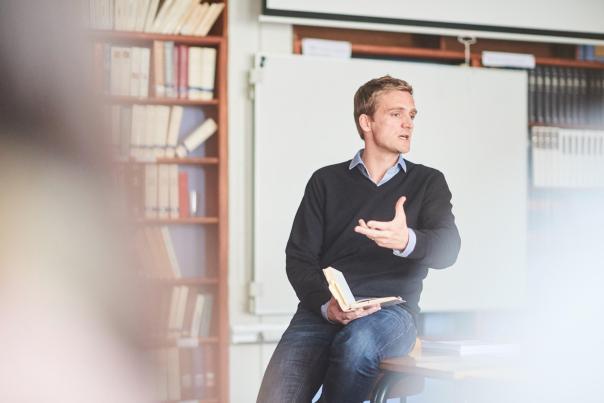
Service to society
Teachers and researchers at the Faculty of Philosophy and Letters contribute to developing the cultural dynamism of the Cité. Through cultural activities, publications and training courses, but also through interventions on request, their work is regularly embedded in the economic and social context of civil society.
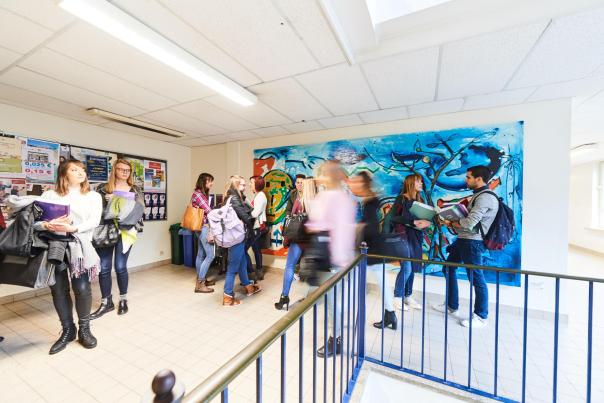
Organization
The Faculty of Philosophy and Letters is organized to manage its missions of teaching, research and service to society. It has services common to the entire faculty. It has 6 departments that reflect its diverse range of teaching, with a focus on yesterday, today and tomorrow.
Spotlight
Agenda
International Conference - Memory(ies) and Political Competition in the Roman World (3rd century BC - 4th century AD)
This symposium aims to study the use of memory and its specific dynamics in the context of political competition, in various spheres and covering a broad chronological framework, from the 3rd century BC to the 4th century AD, with the aim of encouraging dialogue between respective specialists.
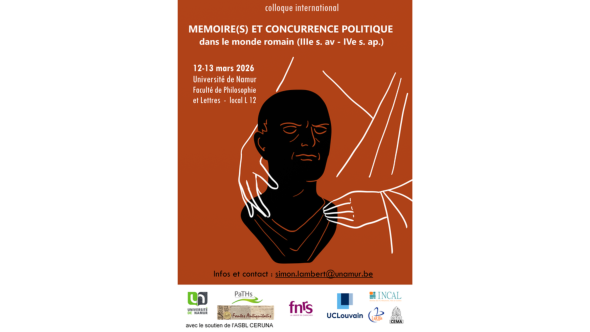
The study of memory phenomena in ancient societies has been a growing field of research since the 1990s, and has been particularly dynamic over the last decade. Awareness of the impact of memory, due to its plasticity, on social and political actors in the ancient world opens up new perspectives for analyzing attested phenomena and events. The conference proposes to study the use of memory and its specific dynamics in the context of political competition, in various spheres and covering a broad chronological framework, from the 3rd century BC to the 4th century AD, with the aim of encouraging dialogue between respective specialists.
Organizers: Simon Lambert (F.R.S.-FNRS Research Fellow), Pierre Assenmaker (Professor, UNamur), and Françoise Van Haeperen (Full Professor, UCLouvain)
Information and registration: simon.lambert@unamur.be
What is a university? Origins and history of a thousand-year-old institution
Conference as part of the Notre-Dame de la Paix Chair 2025-2026 | "University and society. What can knowledge do for the common good?"
Speakers: Antoine Destemberg (Université d'Artois), Olivier Boulnois, (EPHE, Paris) and Louis Carré (UNamur)
After focusing on the issues of the "Commons", the management of "common goods" , "health as a common good", this year the Chair turns its attention to the issue of "knowledge" as a "common good" and the role that the University is called upon to play in the creation and transmission of knowledge.
As its title - "University and society. What can knowledge do for the common good?" - shows, the value and meaning that society places on knowledge, even more so from a universal perspective, is not self-evident.
More info coming soon...
Hannah Ryley (University of Oxford)
Reusing medieval English manuscripts
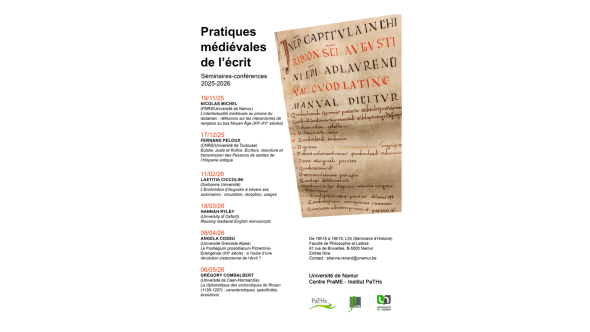
Departments
Faculty libraries
- Philosophy
- History
- French and Romance languages and literatures
- Germanic languages and literatures: Dutch Unit
- Archaeology and art sciences
See the library portal of the University of Namur, which gives access to all publication directories.
Pedagogical Support Unit
The Faculty of Philosophy and Letters has a Pedagogical Support Unit (Cellule d'appui pédagogique - CAP) whose primary mission is to organize activities to help students (mainly Bac 1 students) succeed. It also manages (in part) the evaluation of teaching by students, and leads pedagogical reflection within the faculty.
.

